Happiness Grows Here
- Mary Silfven
- Aug 13, 2025
- 4 min read
It was a rare gray day in late June when I visited Happiness Family Farm on Sauvie Island with photographer Shawn Linehan. As we walked through rows of greens and eggplants, tiny frogs bounced from crop to crop, like they belonged just as much as the plants. Japhety Ngabireyimana met us there, soft-spoken and generous with his time. He runs the farm alongside his parents, Prosper and Rosata, and his siblings, and takes the lead on marketing and outreach.

Japhety explained to me. “We named [the farm] after my sister, Happiness.” It was an intentional choice, a way to bring something positive to the land, to infuse the work with joy, and to get happiness back through the care they put into the soil, the crops, and their community.
Happiness Family Farm began with a 12x12-foot garden plot in the New Columbia housing development, part of a community growing program called Village Gardens. At the time, the family didn’t see it as a business opportunity; farming was simply part of who they were. Japhety’s parents had grown up farming and used those skills to feed their family. “We didn’t know that we could really make money through farming…. [it was] a way for us to have access to fresh food,” Japhety said.

Japhety was born in a refugee camp, and his parents were born in Burundi. When civil war forced them to leave, they fled to Tanzania and eventually immigrated to the United States. “None of us knew any English, so we had to learn, adjust, and figure everything else out,” Japhety said. His dad worked at a bag manufacturer for 15 years. His mom took on a series of low-wage jobs dishwasher, meat processing, and warehouse work.

That community garden in New Columbia was the turning point. “They opened up the very first farmers market to the community there,” Japhety shared. “So, we started, like, being a part of those farmers' markets.”
From there, they branched out to other markets with more consistent foot traffic, including St. Johns, Kenton, and eventually PSU. “From there, we were able to build up more capital, invest in more equipment, and also invest in more land,” Japhety said.
They now farm multiple sites: several acres on Sauvie Island and a few more in Gresham. “We’re really trying to find a place where we can have everything be in one place,” Japhety said. “It’s just so hard… especially in Gresham. To come all the way here, it’s a trip and a half.”
Their Sauvie Island location came through a partnership with Metro and the Black Food Sovereignty Coalition, who initially shared the site among several farmers. As others moved on and the land became underused, Japhety and his family stepped in to take full responsibility. Now they manage the entire space. “Everything you see here, start to finish, we’re the ones managing everything, taking care of everything,” he said.
They farm organically. “We don’t spray. We don’t use any pesticides,” he said. “Most of the stuff is hand-weeding as well. We spend a lot of time trying to take care of these plants, because we know they take care of us when we take care of them.” Farming is deeply physical and not without its challenges. “It’s a love-hate relationship, especially when it comes to weeding,” Japhety shared with a smile. “It could be a long day.”
But there’s reward in it, too. “My favorite thing to eat is the corn and tomatoes,” Japhety said. “And I like growing tomatoes. They’re a challenge sometimes… but seeing the end result is always really cool.”
Their CSA reflects their roots, and the crops they grow are not the standard fare. Among the vegetables: squash leaves, bitter greens, amaranth (lenga lenga), and their signature crop, African eggplant.
The African eggplant, with its rounded shape and slightly bitter flavor, isn’t just central to their CSA; it’s central to the community they feed. These are vegetables grown from seeds brought across oceans, cultivated with the intention of offering something nourishing and familiar to immigrants from Africa who often can’t find these foods anywhere else.
This work extends beyond growing food. Japhety and his family regularly mentor youth through programs like Food Works and The Blueprint Foundation, teaching farming, marketing, and leadership. It’s about more than business; it’s about building a future for their community.
This summer, they’re creating a space to gather and celebrate that work. On August 24, they’ll host a special event on the farm: One Table, Many Roots, a 7-course dinner honoring African and Vietnamese food traditions, prepared by chefs Ouattara Pham and Fatou Thuy. There will be music, storytelling, and, of course, vegetables grown just steps from the table.
For anyone looking to join a CSA that offers more than just fresh produce, Happiness Family Farm is something rare. Every box tells a story of migration, resilience, and deep connection to culture and land. It’s food grown with care, and a chance to be part of something rooted, real, and full of purpose.



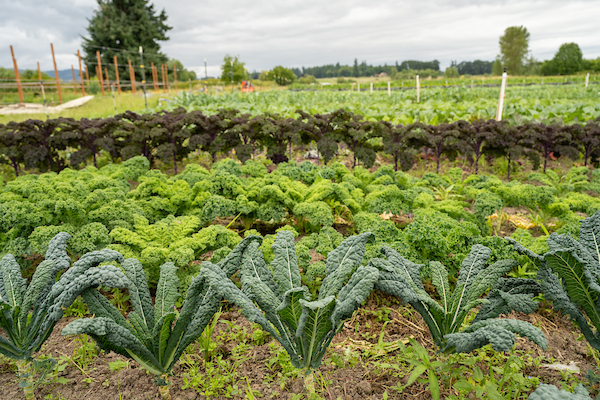

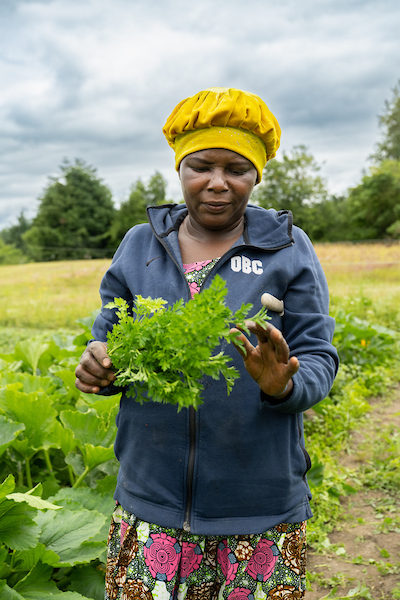





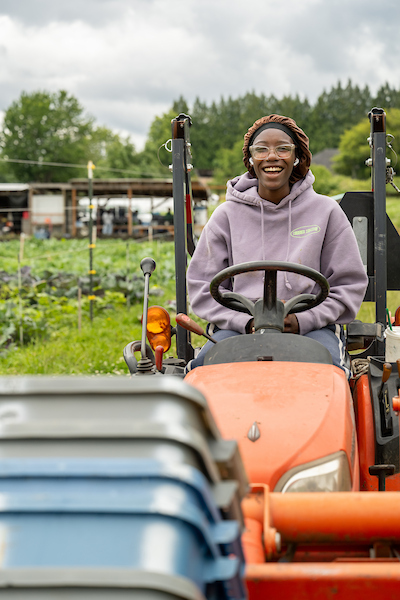







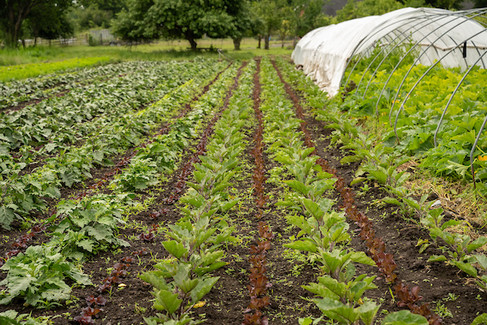

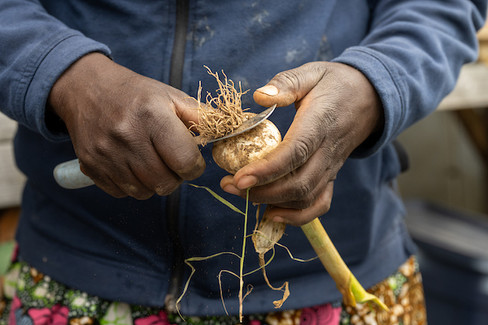









Comments